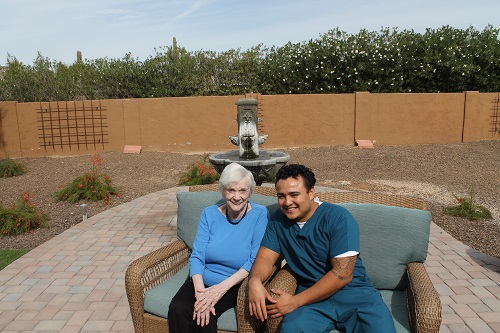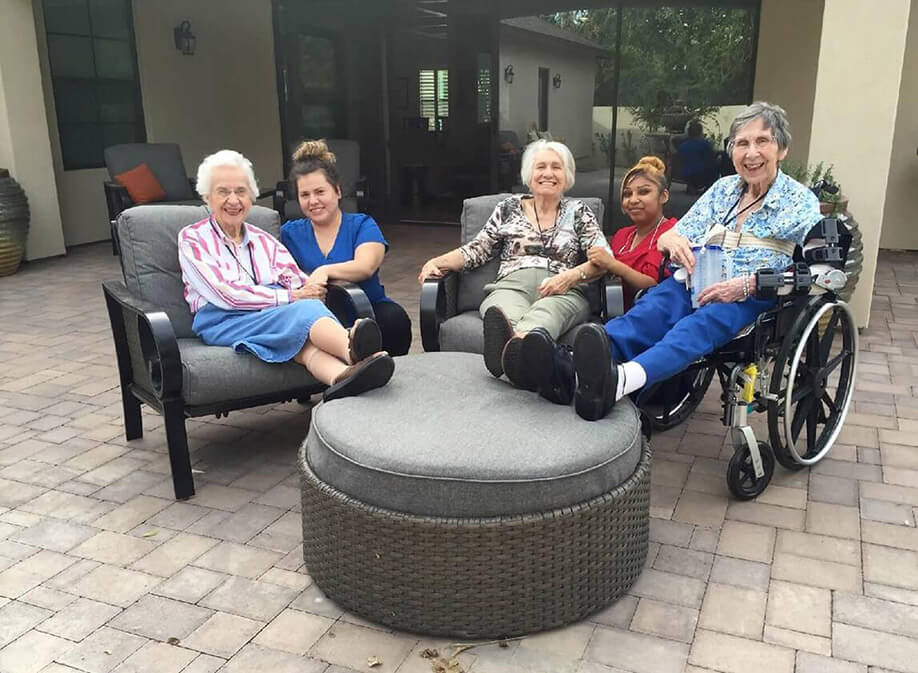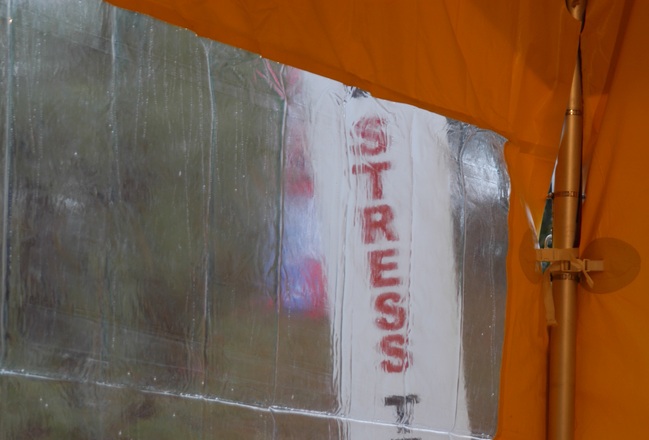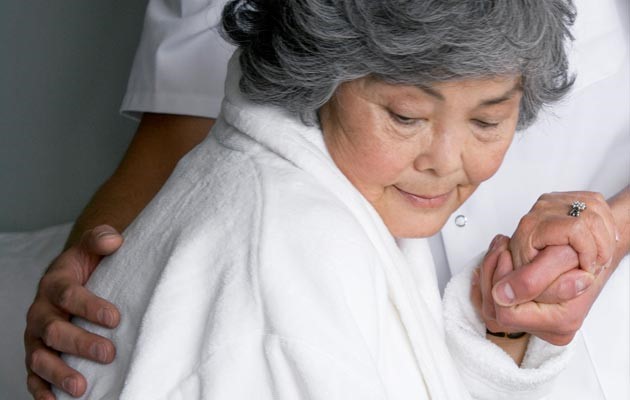The role of a caregiver explained

When looking for the best assisted living facility for your loved one you want to find the best fit; a place where the caregivers and staff will be devoted to meeting their needs of your senior. The role of a caregiver has many facets including administering medications and helping with daily care and tasks. At Paradise Valley Living Centers our state-certified caregivers also looks after the emotional wellbeing of our residents. Being a caregiver isn’t just a job at our group homes, it’s a vocation.
To learn more about what our caregivers do, we sat down with J.J., our senior caregiver at our Paradise Valley group home, to talk about what being a caregiver means to him.
J.J. has been a caregiver at Paradise Living Centers for three years and says he wouldn’t want to be doing anything else. This shines through in his interactions with the residents, including Connie (pictured above with JJ enjoying the patio). Our low staff-to-resident ratio, allows J.J. the time to get to know each of the residents and respond to their ever-changing needs.
Here’s what J.J. had to say about being a caregiver at Paradise Living Centers:
Q: What is a typical day like for you?
A: I work the day shift, which means I am with residents from the time they wake up to the time they go to sleep. I help with breakfast, lunch and dinner and make sure that residents are comfortable and happy. I also make sure that the house runs smoothly and that the residents have a clean place to live.
Q: What have you learned caring for seniors?
A: My previous role before coming to Paradise Living Centers was as a caregiver for teenagers with traumatic brain injuries. Caring for seniors is very different then caring for teens, you must slow down and listen and work at their pace.
Q: Do you grow attached to the residents?
A: I spend more time with the residents than some of my own family members, so we do grow very close. It is important to build relationships with residents and their families, but still keep things professional. Being a caregiver, I am naturally a caring person.
Q: How do you successfully navigate the challenges of your job?
A: It starts with a good attitude, I’ve learned caring for seniors that if you have a good attitude, there’s nothing that you cannot overcome. I also find that it’s important to maintain a positive attitude around our residents to keep their spirits lifted.
J.J. is just one of the amazing team members that helps make Paradise Living Centers a home that our residents and families are proud of. We are grateful for his commitment to providing the best care in assisted living.
Our group homes offer a variety of services and quality care; we have a full-time nurse on call 24/7 and a Care Manager that works with our caregivers to assess and plan the best level of care for all residents. If you’d like to learn more about our services or to schedule a tour at either of our locations, please call us at (480) 878-4112.


